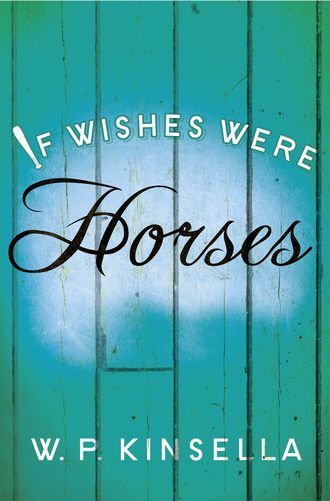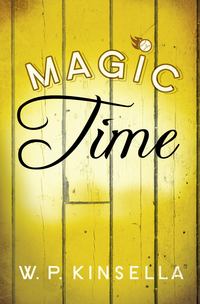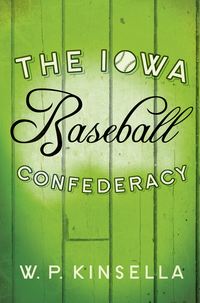
Полная версия
If Wishes Were Horses
‘I understand if you’re reluctant,’ McCoy continues. ‘I made this call in desperation. I’ve always thought of you as someone I could trust. I played major-league baseball for several years,’ he adds, hoping to hew out some common ground.
‘I don’t loan money to friends, let alone strangers,’ I say, putting distance in my voice.
‘I’m not that kind of criminal. Well, actually I am. I held up a McDonald’s in Los Angeles, but there was a good reason. Oh, I’m sorry. I sound crazy. I probably am.’
I do recognize his name. I remember some controversy several years ago, ten or more, in which his name got yelled aloud at the local convenience store. Perhaps he threw a game or something.
‘Just what is it you think I can do for you?’
‘Will you meet with me?’
This was a telephone solicitation. It was my turn to answer a question, to acknowledge that I was still on the line. I remained silent.
‘Are you still there?’ asks Joe McCoy.
‘Yes,’ I say, after another lengthy pause. Then he says the words that crack my telephone-solicitor-hating heart.
‘I need to tell my story to someone who might believe me.’
How many long years were there when that was exactly what I needed? Someone somewhere who would believe that the Iowa Baseball Confederacy existed, as I had always known it had. If it hadn’t been for Stan’s childlike belief in me … but suspicion toward Joe McCoy lingers like a thief.
‘What do you know about me? Just tell me what you know about me,’ I say, a little too loudly.
‘I know you weren’t always considered an authority on baseball history. I remember when you were considered an oddball.’
‘You do?’
Now it was my turn to be surprised. In recent years I’ve been the only one who remembered that. Since I returned from the past, it’s like the whole world has had part of its memory erased.
‘Will you please meet with me? An hour is all I ask. Pearson’s Drug Store in Iowa City, the soda fountain, in an hour?’
‘I can be there,’ I say.
‘I’ve invited someone else.’
‘Who?’
‘Ray Kinsella.’
‘The fellow who built the baseball diamond that attracts tourists?’
‘It’s just that I feel you two have a lot in common. I’m surprised you’re not close friends.’
‘Is he surprised I’m not his friend?’ I say, but Joe McCoy doesn’t catch the irony in my voice.
‘I didn’t tell him who you were.’
‘If you’re a criminal, how can you meet me at a public place?’
‘That’s part of the story I want to tell you. Have you ever heard someone say their luck was so bad they couldn’t get arrested?’
‘Besides you?’
My tone eludes him. I’ve always known that politicians, clergymen, academics and accountants had no senses of humor. Perhaps I will have to add criminals and retired baseball players to the list.
‘Will you meet me?’ His voice rises in agitation.
‘All right. Pearson’s in an hour, then.’
I turn to Missy.
‘I have to go into Iowa City. Is there anything you want?’
Missy asks me to rent a video. She likes the movies about a little red-haired girl named Pippi Longstocking.
It will be interesting to meet Ray Kinsella. In the final days of my quest I considered contacting him. In my frustration at not being able to repeat my journey to the past I’ve considered visiting his farm. I’ve heard his baseball field has healing properties.
THREE
RAY KINSELLA
I’m glad Joe Mccoy has chosen Pearson’s as a meeting place. It is my favorite indoor spot in Iowa City. I discovered it soon after I arrived as a student, more years ago than I care to remember. Pearson’s is a drug store; but at the back, dark and heavily air-conditioned, is a soda fountain, smelling deliciously of chocolate and lime, of cherry Cokes and malt.
From one of the dozen stools at the soda fountain one can watch a devilled-egg sandwich being prepared or see a chocolate malt—there are none better anywhere—being created by a waitress, one of whom, Doreen, has been working at the soda fountain for all the years I’ve been going there.
I have a habit of being early for every appointment: I arrive half an hour early to watch batting practice of a summer evening or to have a tooth filled on a depressing January afternoon. I order only coffee, but my resolve disappears quickly enough. Even though it is barely 9:30 in the morning, I order a half-sized chocolate malt, which at Pearson’s is called a pony malt, a term I’ve encountered nowhere else.
I eat my malt slowly, dipping the straw in and licking the stiff, cement-like mixture off the end. That’s the way I taught Karin, and later the twins Shannon and Crystal to love chocolate malts. When each was just old enough to accept that kind of food I would hold her in the crook of my arm and, dipping the straw in the malt, push the laden end of the straw into her mouth. Each baby would smack her lips and make wonderful gurgling noises that sounded vaguely Japanese.
The next person to arrive is Gideon Clarke. I have been watching everyone who came in, knowing I would recognize Joe McCoy, wondering who the mysterious third party could be. Gideon Clarke is a white-blond scarecrow of a fellow, tall and stoop-shouldered, who lives in Onamata, a dying town on the Iowa River a few miles south of Iowa City.
We’ve never spoken, but both of us patronize Pearson’s regularly, and he was a denizen of the University of Iowa library all the while I was studying there. I know vaguely that he was involved in some dispute with the Department of History over a thesis his father had written in the 1940s. There was some talk he was going to sue the university because they wouldn’t accept as fact what his father had written.
He must have been right all along, for a few years ago something happened, and since then he’s been regarded as a baseball historian. He’s given lectures at the university, though I’ve never attended, and I saw his picture, his long, bone-white hair combed tidily for the photograph, on the cover of Sports Illustrated a year or two ago.
There are three stools at the far left of the counter. I’ve occupied the middle one. Clarke swings a long leg over a stool near the center of the soda fountain. A group of coffee drinkers occupies the far end.
‘Where’s Missy today?’ Doreen, the waitress, says to him. She is wearing a black uniform with a white collar.
Missy? Perhaps he has daughters, as I do, though I’ve never thought of him as being married. Or Missy could be a wife.
‘She’s at home this morning. Actually I’m here on business …’
‘I thought it was a little early in the day. What can I get you?’
‘A green river float,’ says Gideon Clarke.
‘Sure,’ says Doreen. ‘This is usually coffee time,’ she says to anyone who cares to listen. ‘Takes a real drinker to down a green river this early.’
A green river is something else unique to Pearson’s, or at least to the Midwest, a sweet-tart lime drink that goes down best as a float with a baseball-sized scoop of French vanilla ice cream bobbing in the middle of it.
As she turns to work at the soda fountain I catch Gideon Clarke’s eye and say, ‘Did you happen to get a mysterious phone call this morning?’
‘Are you Ray?’ he replies. ‘Joe …’
‘I’m the third party, Ray Kinsella. Did he tell you there was going to be a third party?’
‘He did. I’ve seen you here lots of times, and around town, I just never connected the name and the face,’ says Gideon.
‘He didn’t supply the third party with a name. I was just guessing. Though I know who you are, and I guessed that since all three of us have rather strong connections with baseball …’
Gideon moves over four or five stools until he is on the first stool around the corner. I move against the wall leaving an empty stool between us. The scene reminds me of the unwritten rule of washrooms: unless there is a crowd men leave one empty urinal between them. We shake hands. His hands are too large for his body, his skin as white as his hair.
Doreen appears with the green river float, long-handled silver spoon and straw. Doreen is about fifty with shoulder-length black hair, a long face and prominent teeth; it is a face made friendly by laugh lines acquired through years of bantering with her customers. Doreen and Lila, the other woman who works here regularly, are bossy and jovial in a motherly way; they each have several children. Doreen has a new grandson, and I, as a regular here, know of each new tooth and inoculation, while Doreen sees my Karin’s report cards and monitors Shannon and Crystal’s progress as three-year-old ballet dancers.
She plops the green river float and accoutrements on the counter in front of Gideon.
Norman Rockwell could have invented Pearson’s, could have drawn its waitresses. ‘Pearson’s is Iowa City,’ I tell Karin, almost every time I bring her here. The city expands, food and muffler franchises multiply, demolition crews chip away at history. Rows of elegant old houses are replaced by pink brick warrens that house stereo sets and university students; but Pearson’s survives, a little piece of the past intact, cool, dark and chocolatey-smelling.
‘Hey,’ says Doreen, bustling back from delivering a sandwich to the other end of the counter, ‘want to hear a riddle?’
‘What choice do I have?’ There is no choice. Doreen’s riddle will be clean and simple, probably something to do with elephants.
‘What’s the one thing you can never do during your lifetime?’
I lick the end of my straw contemplatively. I have no idea, but I usually like to make a weak guess or two before giving up.
‘Attend your own funeral?’ I say finally.
Doreen snorts. ‘Tom Sawyer attended his own funeral. Lots of people have faked their deaths and attended their funerals.’
‘You’re right,’ I say, pretending to be chagrined.
‘See the back of your neck,’ says Gideon, stirring his green river.
‘Can’t you do better than that? Anyone can set up enough mirrors to see the back of their neck.’
‘We give up,’ I say.
Doreen waits a long minute before divulging the answer, savoring her triumph. ‘Don’t care who you are, you never get to read your own autopsy report,’ Doreen chortles. ‘You can fake your funeral, but once you’ve been dissected like a biology-class frog, that’s all she wrote. Ha!’
‘I read mine,’ says a high-timbred voice behind us.
Gideon and I both swivel on our stools. Doreen raises her eyebrows, waiting for further explanation. There he is. He must have entered at the front, crossed the store and come down the far wall so he could sneak in behind us. He is a slight young man, with sandy hair. Too small to have been a major-league pitcher. His hands are slim and white. He doesn’t look dangerous.
Doreen moves down the counter to where someone is signalling for a refill, while the three of us shake hands.
FOUR
GIDEON CLARKE
Having spent most of my life being a researcher, instead of driving directly to Pearson’s I stop first at the University of Iowa library and spend a fast fifteen minutes scanning recent issues of the L.A. Times and Des Moines Register.
Joe McCoy certainly wasn’t lying about being a criminal. Reading of his exploits over the past several weeks makes me wonder how I could get so out of touch with what is happening in America. Not that anything McCoy’s been doing is of great importance. He’s an ex-major-league pitcher, working as a reporter in Los Angeles, who, for no apparent reason, was involved in a rather bizarre kidnapping. I vaguely remember his name—perhaps Stan has mentioned him—and I guess I knew, at least subliminally, that he grew up in Lone Tree, the next town down the line from Onamata.
McCoy looks very much as I had pictured him from the blurry mug shots in the newspapers. He is only about 5´8˝, wiry, with long reddish-blond hair and quick, almost furtive blue eyes. He is wearing faded jeans and sneakers, and a red-and-white satin baseball jacket, old and glazed with dirt, with LONE TREE in red, carpet-like letters on the back. He takes a long time to decide to sit on the stool between Ray Kinsella and me. He has that about-to-spring demeanor of a startled bird, the look of a second baseman caught napping on a bunt play, still at his position when he should have covered first, wishing that everyone would stop staring at him.
‘The autopsy thing is true,’ he says. ‘But so routine as almost not to count. Remember that business in L.A. where they thought the body in the burned-out car was me?’ He waits for a response, doesn’t get one.
‘You didn’t read about it, did you?’ he says with disappointment. ‘I’ve been away from the Midwest too long.’
Ray and I remain silent. On the drive into Iowa City I had heard a song on a country station that was called, I think, ‘Here’s a Quarter, Call Someone Who Cares.’ McCoy displays what seems to me a false bravado. I’m sure the autopsy thing is true. I don’t like him very much.
‘It’s been ten years since I’ve been in here,’ he says, as Doreen takes his order for a chocolate malt made with chocolate ice cream. ‘I have, I had, a friend-enemy at LAPD. He let me read the autopsy report.’ He shrugs.
Doreen pays no attention to him as a person, it is obvious he means nothing to her, yet Doreen is one who keeps up on the news; she often asks me about local and national events I have no knowledge of. She would be aware if there was a nationally known fugitive at large who used to live at Lone Tree. She would recognize his face. But she goes to make his order without a backward glance.
While Joe and Ray talk quietly about where their paths may have crossed I remember who and what Joe McCoy reminds me of. A couple of months ago a salesman came to my door. I couldn’t avoid him because I was sitting on the porch swing reading a book when he strode up the sidewalk and knocked on a porch pillar to attract my attention.
He was wearing a white shirt, black pants and tie. At first I thought he might be a Mormon missionary, but no, he was a salesman hawking encyclopedias, and since my body was warm, I was a prospect. He moved in for the kill.
He buried me in an avalanche of words. He was delivering a canned sales pitch, but even my all but ignoring him failed to deter him. He simply pretended that I had acknowledged the importance of what he was saying and crashed onward like a moose through a thicket.
I found him totally detestable. And when he finally finished his presentation, sweat running in his eyes, yards of brochures, and sample copies spread about the porch swing, the railing of the verandah, and the floor, I told him so.
‘It doesn’t matter what you’re selling,’ I told him. ‘It could be carpet tacks, carpet itself, or a whole new interior to my house. If I like you, I’ll buy any product from you that isn’t totally fraudulent, and the average person will buy the fraudulent products too.
‘What you’ve shown me this morning is a loud, self-centered, obnoxious, hot-shot salesman out to swindle a small-town rube. Now get off my property.’
‘But I’m not like that,’ the young man said. His shoulders slumped and he took a deep breath. For a second I thought he was going to cry.
‘I’m not loud. I’m no more self-centered than anyone else. And I’m sure not a hot shot; I’m scared to death. I haven’t made a sale in two weeks and I’m out of cash and every time I go to buy food or gas on my credit card I expect it to be seized, and I’ve got a wife and two babies back in Oklahoma, and the only money I’ve sent them this month is three cash advances I’ve taken on that same credit card.’
That changed my opinion of the young man entirely.
‘Are you selling a good product?’ I asked.
‘The best,’ he replied. ‘I researched it.’
‘Then why didn’t you tell me that, instead of spewing all that foolishness designed to make me feel guilty if I don’t buy? You never asked what I do. I’m a researcher of sorts. I need current geographical information, like what’s the population of Houston at this minute? How far is it from Toledo to Cincinnati? Will your books have the answers to those questions?’
‘Yes, sir, they will. And there’s an atlas, a really good one, and a year book every year for five years with updates on current events and statistics.’
We talked for another hour, not about selling but just about life in general. His name was Carsten Walgreen; his wife’s name was Kitty and his daughters were Katherine Dowd and Patricia Darling.
I called to Missy and told her to change her dress, we were going to town, and the three of us drove into Iowa City. I sent Carsten to the university library to do some research for me while Missy and I came here to Pearson’s for green river floats. Afterwards we met Carsten, and when he gave me the information I wanted I placed an order for fifty sets of encyclopedias. At over a thousand dollars a set, the bill, with taxes, came to over fifty-eight thousand dollars.
‘You don’t look rich,’ Carsten said, when he got over the shock. The research I’d asked him to do was to compile a list of small libraries in the eastern end of the state, fifty of them to be exact.
‘I don’t feel rich,’ I said. ‘My mother’s second marriage was into a monied family. I inherited more than I ever dreamed. The money just sits and multiplies. I have trouble spending ten thousand dollars a year. My accountants will be happy to have such a healthy charitable deduction.’
The odds, I suppose, were about even money that Carsten was a miserable little shyster, but he wasn’t. He had been a university student at Norman, Oklahoma, working toward an MBA, when he got his girlfriend pregnant. They were married, but the money ran out; and his family weren’t about to provide for three and eventually four. He dropped out and worked at the kind of miserable jobs a boy with three dependants and a year and a half toward an MBA can expect.
I’m jolted back to the present by Joe McCoy clapping his hands.
‘I suppose you gentlemen are wondering why I’ve called this meeting?’
I’m tempted to say that I’m not wondering at all. I want Joe McCoy to be the boy from Tidewater, Oklahoma, with the pretty wife and daughters in white dresses, not the overzealous encyclopedia salesman intent on making an impression.
‘Gideon,’ and he lowers his voice as he speaks, ‘let me begin by saying that I am on the FBI’s 10 Most Wanted List.’
Should I congratulate him? Offer sympathy? I glance over my shoulder toward the racks of greeting cards. Is there one that says, ‘Congratulations on Making the FBI’s 10 Most Wanted List’?
‘Well …’ I say, not sure what to do. I don’t like being entrusted with this type of information.
‘If you gentlemen will bear with me I’d like to tell you my side of the story. Though you two don’t seem to know each other, I believe you’ve each had experiences that while not totally alike, are similar enough that you might sympathize with me and be able to offer some advice on how to get out of my situation—alive and without doing a hundred years in prison.’
‘I’ve got an hour or so,’ says Ray.
‘Why not?’ I say. I owe him that much. My life was once terminally weird and I’ve been having some disturbing dreams lately, erotic dreams, but not about my long-lost wife or my long-lost girlfriend. I’ve been dreaming of kissing the pouty lips of a small blonde woman who speaks in a language I’m unfamiliar with, though it seems I can almost understand what she’s saying.
Besides, Joe McCoy looks distraught enough that he might pull a gun and take us hostage if we don’t let him deliver his monologue.
‘Fair enough,’ says Joe McCoy. He dips his straw in the double chocolate malt Doreen has set in front of him. He looks uneasy, as if he doesn’t know where or how to begin.
FIVE
JOE McCOY
‘Fair enough,’ I hear myself saying. Gideon Clarke is not exactly what I’d hoped for, he and Ray Kinsella being my court of last resort, so to speak. Gideon looks at me from under his white silk eyebrows. I think he’d like to turn me in.
I play frantically with my straw, dipping the end in the thick mass, licking the chocolate off. I notice Ray eats his shake the same way.
Should I preface all this with an apology? ‘Look, I’m sorry, I’ve done what I’ve done,’ I could begin.
Here is another beginning: My name is Joe McCoy and I have lost my wife and family. I have a beautiful little girl named Charlotte, who hugs my neck and is all angel eyes and soft little kisses. I soak up her love like a sponge. I would give up my life for her, for my wife Maureen, for my baby son, Joe Jr.
At the moment all three are lost to me. I have been kidnapped and thrust into an alien dimension, where I am someone else. I am someone I don’t even like very much. I am the someone else I would have been without Maureen Renn, without my roots in the quirky little town of Lone Tree, Iowa, without my passion for baseball, without my beautiful children.
The Joe McCoy I am in Los Angeles, the Joe McCoy in an open-necked white shirt, black slacks and a pair of hot-shot alligator cowboy boots, the Joe McCoy with a beeper attached to his waist, cannot be the Joe McCoy that Maureen loves. Maureen would laugh at this Joe McCoy.
‘You buy those boots to compensate for a small dick?’ Maureen would ask if I had the audacity to come home wearing them.
‘I do not have a small dick.’
‘Of course you don’t. And I’m the only one it matters to, and I’ve been happy with it for almost fifteen years and will be for another thirty, providing you lose those ridiculous boots.’
‘I’ll drop them off at Goodwill tomorrow.’
‘Why not just park them under the bed for the moment, and tonight we’ll pretend you’re a six-foot-eight rodeo cowboy with a big dick …’ Maureen puts her laughter aside and reaches for me, her mouth sweet and swarming. I grab a handful of her plum-colored hair, pull her even closer.
My wife Maureen is the love most men never know.
Then she’s gone. The Joe McCoy even I don’t like much is sitting in the newsroom late at night, trying to compose a story, wearing hot-shot alligator boots and a beeper.
What I actually say to Ray and Gideon is, ‘If I could live my life over, I’d pitch in the damned state tournament. I’d ruin my arm, forget about a career in baseball, attend the University of Iowa, study journalism, get a job with the Iowa City Press Citizen, marry my high-school sweetheart, Maureen Renn, and live happily ever after, okay? That’s what I wish I’d done. But I didn’t.’
Well, baring my soul hasn’t cleared the air any. These guys look at me as if I’ve spoken in Croatian.
‘How long ago was this? This state tournament business?’ asks Ray.
I name the year.
‘Oh, well, I was working at an evil job then, selling life insurance to keep from starving. It was sort of like robbing convenience stores, only legal and less profitable. I was waiting for the girl I was going to marry to be old enough to propose to, hoping she wasn’t going to run off with a brainless football player her own age. I didn’t have much time to follow local sports.’
‘I was being thrown out of the offices of the Chicago Cubs,’ says Gideon. ‘I was writing letters, doing research, trying to find someone who would believe in the Iowa Baseball Confederacy. I didn’t keep track of local sports. I was interested in bigger game.’







